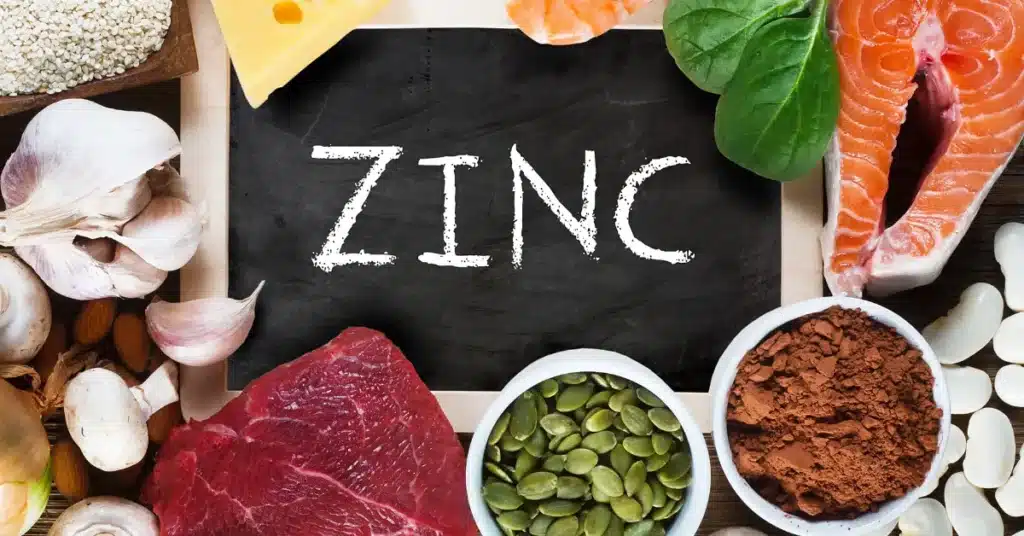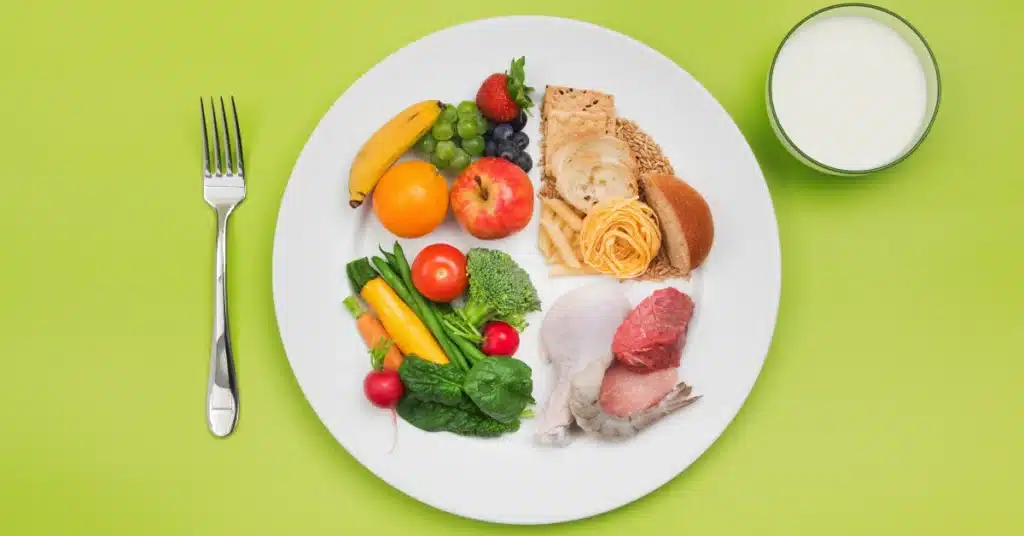How to Treat High Testosterone in a Woman? A Complete Guide
Testosterone is a natural hormone in both men and women. However, an imbalance can disrupt a woman’s hormonal harmony.
It can lead to a lot of physical and emotional symptoms, such as excessive hair growth, acne, irregular menstrual cycles, and mood disturbances.
Thus, managing high Testosterone in women is crucial for their overall well-being and quality of life.
Now the question comes how to treat high Testosterone in a woman?
In this article, we will explore various treatment options, lifestyle changes, and dietary adjustments to help restore hormonal balance and alleviate the associated symptoms.
Effective medications in managing high Testosterone in women
Elevated Testosterone levels in females can lead to a range of health concerns, including conditions like Polycystic Ovary Syndrome (PCOS) and Congenital Adrenal Hyperplasia.
Discover actionable insights to take charge of your hormonal balance.
To address these issues, healthcare professionals often turn to medications designed to regulate and lower Testosterone levels.
These medications are crucial in restoring hormonal balance and alleviating associated symptoms.
Let’s explore the key medications used to lower Testosterone in women effectively and the conditions they are commonly prescribed for:
Metformin
Often prescribed to treat Type 2 Diabetes, Metformin is a common choice for women with Polycystic Ovary Syndrome (PCOS).
It works by regulating Insulin and lowering blood sugar levels, which can help in reducing high Testosterone levels, a common issue in PCOS.
Glucocorticoids
These are specific types of steroid hormones that can decrease inflammation in the body.
They are used in cases of Congenital Adrenal Hyperplasia, a condition where additional Glucocorticoids are required to manage high Testosterone levels.
Spironolactone
A Diuretic medication, Spironolactone assists in balancing water and salt levels in the body.
It is often prescribed to combat excessive hair growth in females.
By slowing down the production of Androgen sex hormones, including Testosterone, it can be effective in addressing high Testosterone levels.
Oral contraceptives
Certain birth control pills are a viable option for blocking Testosterone.
Look for birth control containing low levels of Norgestimate, Gestodene, and Desogestrel, as recommended by the American Academy of Family Physicians.
Keep in mind that this treatment may come with potential side effects, such as reduced libido and mood changes, which should be discussed with your healthcare provider.
Supplements for managing high Testosterone levels
Women can consider these four essential supplements: Zinc, spearmint tea, Chasteberry, and Saw Palmetto, as they offer complementary benefits in managing high Testosterone naturally.
Let’s understand them in detail:
Zinc

Zinc, a key player in hormone balance and reproductive health for both genders, is crucial for proper Testosterone synthesis and metabolism.
Research points to Zinc deficiency potentially contribute to high Testosterone levels in women with PCOS.
Including Zinc-rich foods like oysters, meat, nuts, and legumes in your diet or opting for a Zinc supplement may work wonders in restoring optimal Zinc levels.
Spearmint tea
Spearmint tea packs anti-androgenic compounds, when consumed regularly, may help reduce Testosterone levels in females.
The same study observed a significant drop in Testosterone levels in women with Hirsutism and Androgenic Alopecia after drinking spearmint tea twice daily for one month.
This advantage lies in the flavonoids of spearmint tea, which can inhibit Testosterone activity and conversion.
Chasteberry
Chasteberry, a traditional herb known for balancing female reproductive hormones, contains flavonoids that influence hormone secretion, including Testosterone.
Research suggests that Chasteberry extracts can be effective in mitigating high Testosterone levels in women with PCOS.
The standard dosage typically ranges from 200-400 mg per day of a standardized extract.
Saw Palmetto
Saw Palmetto, often associated with treating Benign Prostatic Hyperplasia in men, may also be a tough opponent against Testosterone production and activity in women.
The recommended dosage typically stands at 320 mg per day.
Lifestyle adjustments

Treating high Testosterone levels in women naturally involves straightforward dietary changes that can yield effective results.
Certain lifestyle adjustments can help reduce high Testosterone in women and manage related symptoms:
- Maintaining a healthy weight: Some studies suggest that even a modest 5-10% body weight loss can enhance fertility, regulate menstrual cycles, and alleviate PCOS symptoms
- Balanced diet: Following a well-rounded diet while limiting foods high in sugar, refined carbs, saturated fat, and trans fat can improve PCOS symptoms
- Hair management:Managing facial and body hair can be done by plucking, shaving, waxing, or using chemical depilatories. Some individuals choose to lighten their hair to make it less noticeable.Unwanted hair can also be managed with treatments like Electrolysis and laser therapy
Conclusion
In addressing the challenges of high Testosterone in women, a range of effective solutions, both through medication and natural means, are available.
Medications such as Metformin, Glucocorticoids, Spironolactone, and specific oral contraceptives play a pivotal role in regulating Testosterone levels.
This is especially in conditions like PCOS and Congenital Adrenal Hyperplasia.
On the natural front, dietary adjustments involve maintaining a healthy weight, along with a balanced diet.
Green tea, flax seeds, and supplements like Zinc, spearmint tea, Chasteberry, and Saw Palmetto offer valuable support in managing Testosterone naturally.
Balancing your hormones can improve skin health and prevent further hair growth in cases of hirsutism.
However, while treatments like electrolysis and laser therapy can remove existing hair, they do not address underlying hormonal imbalances and may carry risks, so always consult a healthcare professional.
Frequently Asked Questions
How can a woman reduce Testosterone levels?
To reduce Testosterone levels in women, consider medication options like Metformin or oral contraceptives as prescribed by a healthcare provider. Natural methods include increasing protein and fat while decreasing sugar and incorporating supplements like Zinc, spearmint tea, Chasteberry and Saw Palmetto. Balancing hormones can lead to improved well-being.
How can high Testosterone in women be treated?
High Testosterone in women can be treated through medication, such as Metformin or oral contraceptives, prescribed by a healthcare professional. Natural approaches include increasing protein and fat while reducing sugar and incorporating supplements like Zinc, spearmint tea, Chasteberry and Saw Palmetto. Balancing hormones can lead to improved well-being.
Are there natural ways to manage high Testosterone in women?
Yes, there are natural ways to manage high Testosterone in women. Dietary changes, such as increasing protein and fat while reducing sugar, can help. Additionally, supplements like Zinc, spearmint tea, Chasteberry, and Saw Palmetto offer natural support in balancing hormones, leading to improved well-being.
Which supplements do I take for high Testosterone?
For high Testosterone, consider supplements like Zinc, spearmint tea, Chasteberry, and Saw Palmetto. These natural options can assist in balancing hormone levels and are often recommended to help manage elevated Testosterone in women. Always consult a healthcare professional for guidance on the best approach for your needs.
WowRx uses only high-quality sources while writing our articles. Please read our content information policy to know more about how we keep our content reliable and trustworthy.






